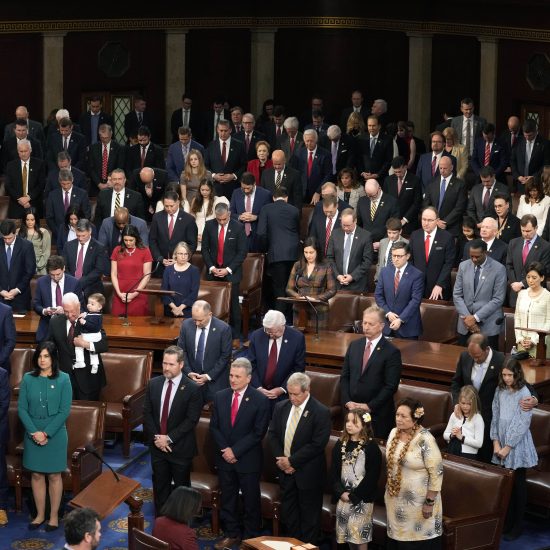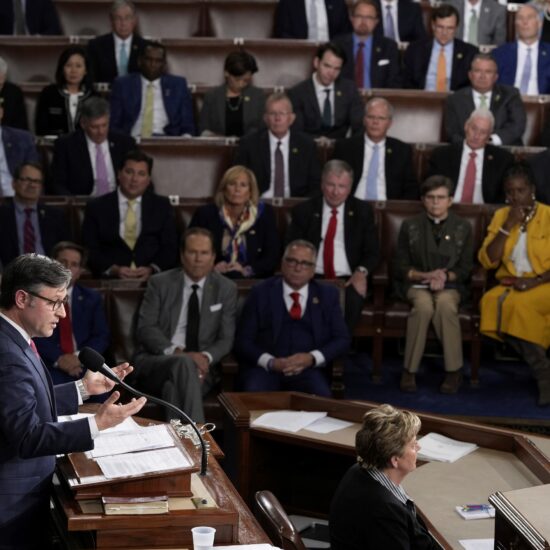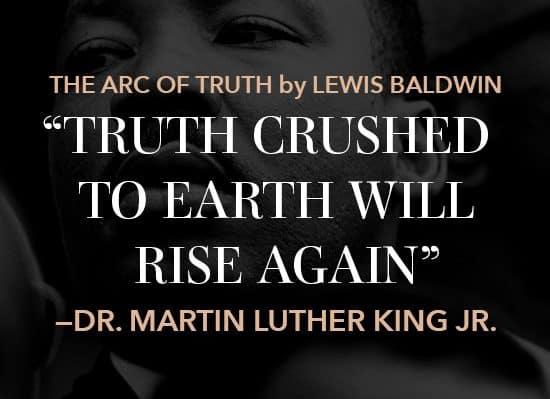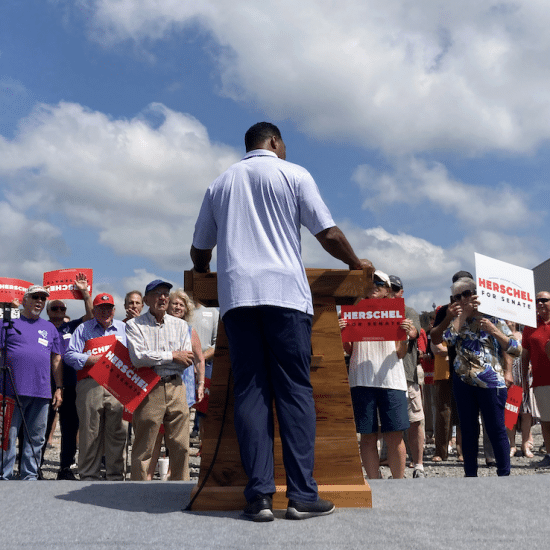A proposal that the Missouri Baptist Convention budget Cooperative Program funds to pay attorneys’ fees and court costs in its lawsuits against five institutions has generated a buzz among the state’s Baptists.
And statements by MBC leaders justifying that use of CP monies have drawn quick responses from the heads of those institutions — The Baptist Home, Windermere Baptist Conference Center, Word&Way, Missouri Baptist University and Missouri Baptist Foundation.
The rationale for spending missions money from churches on suits filed by the MBC is that Cooperative Program funds “purchased, built, established and maintained” the institutions, in the words of new MBC executive director David Tolliver, so it only makes sense to use CP monies to pursue the cases.
The entity heads say Missouri Baptists need to hear facts about how their institutions came into being, their facilities constructed and their ministries maintained — not vague characterizations that distort those facts.
They say that while they are grateful for funds distributed to them through the Cooperative Program in the past, MBC leaders overstate the impact of the benefit.
In 2002, the year CP allocations for the five were escrowed and never paid, the convention budgeted about $2.1 million for them. That represents less than 5 percent of the combined current operating budgets of the the five.
The convention defunded all five then filed suit in August 2002 in Cole County after the five amended their articles of incorporation to self-elect their trustees. The Baptist Home took the action in 2000, while the others did so in 2001.
By the MBC Executive Board’s calculations, from 1971 until 2001 — the last year any of the five received MBC funds — the entities in question received $24.6 million total, or an average of $820,000 per year.
Only the Windermere case has been decided — in favor of the conference center. Judge Richard Callahan issued the ruling on March 4, 2008, and a panel of three appellate judges unanimously upheld that decision on Feb. 3. The Missouri Supreme Court on May 5 declined to accept the case on transfer, effectively exhausting the MBC’s final appeal.
Hearings on the remaining cases have yet to be scheduled.
Each institutional head responded to questions from Word&Way about their beginnings, operations and growth through the years.
Missouri Baptist University
Missouri Baptist University’s budget for 2009-2010 is $32.5 million, according to Alton Lacey, the school’s president since 1995. That is more than double the Missouri Baptist Convention’s proposed 2010 budget of $15.75 million.
“By its own policies, the funds we received from the MBC were restricted for scholarships for Missouri Baptist students,” Lacey wrote in an e-mail response. “When they took those funds away [in 2002], they took them away from students and families who needed them to attend college.
“MBU budgets $7 million in institutional scholarships from our own funds,” Lacey explained. “The most we ever received in a year from CP funds was about $925,000. That would be less than 3 percent of our total budget and less than 14 percent of our scholarship budget alone.”
And what of the suggestion that the convention “built” the university?
“To my knowledge, all of our property and buildings have been purchased and built with donor dollars,” Lacey said.
“Our budget has never been driven by endowment (less than 1 percent) or CP funds,” he said. “It is driven by students who pay tuition to attend, the majority of whom are Baptist. We have the largest headcount enrollment of any Baptist institution in the state, and we have continued serving Baptists in record numbers.”
“In 1974, the college closed for about a week because of financial exigency,” the president said. “It was local pastors that conducted a campaign and resurrected the school through participative giving by local churches, not the MBC. Those churches still support us today.”
St. Louis area Baptist leaders started the school in the early 1950s, and classes were held “at Tower Grove Baptist Church until about 1968,” Lacey said. St. Louis-area Baptists and other donors originally invested $631,000 in MBU’s land, he said.
Donor contributions have been key to developing the campus, currently valued at $47 million,” Lacey said.
The Baptist Home
Steven Jones, president of The Baptist Home since 2006, said the institution was started in 1913 by a pastor and wife — Milford and Mary Riggs — “who had a heart for serving the aged in the face of opposition by many Missouri Baptists of their day.”
It was four years later that the Baptist General Association of Missouri recognized the Home, Jones said.
“The convention has never held title to any Baptist Home properties nor helped acquire property or assets,” he said. “The convention did not contribute to the expansion of the ministry to Chillicothe and Ozark.
“Our second superintendent, Dr. D.J. Scott, said that annual convention support was enough to operate the Home for 20 days,” Jones said. “Our third superintendent, John Burney, said that convention support was about 11 percent of operating expenses. It was about 8 percent during the [Ed] Goodwin years and averaged about 5 percent during the [Larry] Johnson years before being cut off.
“We are exceptionally grateful for the support we received from faithful Missouri Baptists through the convention,” Jones said. “I say ‘through’ because the convention was passing through funds that came from churches and individual donors.
“One out of every four benevolent care residents at The Baptist Home was supported by Missouri CP and Missouri Missions Offering dollars,” he explained
“In fact, 100 percent of all monies received from church and individual donors and the endowment is applied directly to resident care,” Jones said. “The Baptist Home continues to provide this care to any and all Missouri Baptists regardless of the political positions of pastors and churches in the MBC.
“This year The Home spent nearly $2 million providing such care for 52 percent of residents while not receiving any government funds or support from the MBC,” he said.
During the Great Depression of the 1930s, the convention withdrew its support from the ministry, and it was subsequently sold on the courthouse steps, Jones said. Two non-Baptist businessmen purchased it and within 60 days gave it to a self-elected Baptist Board of Trustees, who formed a new corporation.
The appraised value of facilities on the three Baptist Home campuses is about $30 million.
Windermere Baptist Conference Center
The MBC purchased Windermere in September 1957.
“It is fair to say the MBC was good to Windermere and provided much in support,” Windermere president and CEO Dan Bench said in an e-mail reply to Word&Way. “It is only fair to point out that guest revenues were and still are the big dollars that pay the bills and provide for growth.”
The convention budgeted $148,875 in CP funds for Windermere in 2001, an amount equal to 5 percent of the conference center’s $3 million budget.
Windermere traditionally has augmented full-time, part-time and seasonal staff with volunteers who have performed countless tasks. Many have rendered such service for years. “I really can’t give you a meaningful total for the value of services rendered,” Bench said. “How about ‘priceless?’”
The conference center has seen its facilities develop from those of a rustic camp to a modern conference center with contemporary lodging and convenient access for retreat and meeting services. Through the years, donors stepped up to make significant gifts to bring into existence facilities proposed in a master plan, resulting in a facility appraised at $28.5 million.
Missouri Baptist Foundation
“The [Missouri Baptist] Foundation highly values the support of the Cooperative Program through the years,” said president James Smith in an e-mail reply. “The CP funds have enabled the Foundation to provide services to churches, individuals, mission and ministry causes around the world. CP has been a valuable resource to the Foundation and those we serve, and we have felt its loss,” he said.
From its inception in 1946 — 62 years ago — the Foundation’s total operating expense was $22,549,835 and CP funds received were $4,725,332, an average of 20.9 percent of total expenses, Smith reported. “CP support ranged at a high of around 37 percent to a low of less than 2 percent of our operation expenses.”
Early documents called for the convention to provide 100 percent support for the Foundation, Smith said. In actuality, the Foundation’s system of cost recovery has carried 80 percent of the load.
Ironically, while The Foundation has not received CP gifts through the MBC for more than seven years, the agency has continued to provide funds to the Cooperative Program.
“It is important to note that [Foundation] distributions to the CP from 1946 to 2008 total $5,556,908, which is $831,576 more than” what the agency received through CP during the same time period, Smith said.
“The average contribution from the Foundation to the Cooperative Program over the last five years has been $186,940 per year,” he added. In 2008, if the Foundation had been a church, it would have ranked sixth in CP giving among Missouri churches, he said.
Endowments established by the Foundation to benefit the Cooperative Program are more than $3.5 million.
From 1946 through 2008, Foundation distributions to all Baptist causes and ministries has exceeded $127 million, Smith said, or an average of more than $2 million per year. “Since the Foundation has lost funding from the Cooperative Program, the MNF has generated $7,870,533 on average per year for the last five years.”
The convention was on the receiving end a few years ago when the Foundation contributed $330,000 to the MBC to remodel the Baptist Building — where its offices are still housed.
Endowment and other funds have set in place more than $70 million to permanently support ministries, and more than $115 million has been established as planned gift benefits since 1987 alone, Smith said.
Bill Webb is editor of Word&Way.






